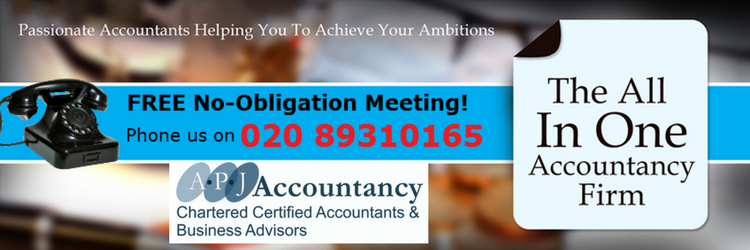One of the main reasons that individuals voted "leave" was to restore fiscal sovereignty to the UK so that we are able to set our own laws, in particular tax law, without interference from Brussels.
Significant tax changes currently require “State Aid” approval and we have seen many recent tax changes forced on us by the EU such as the extension of Furnished Holiday Letting treatment to EU properties and the extension of EIS and EMI to companies with a PE in the UK instead of trading wholly or mainly in the UK.
VAT is the one tax that is likely to see the most significant changes as a result of leaving the EU. However, it is well known that it will take 2 years following the UK’s notification of Article 50 before we leave the EU. So until then, businesses will trade as normal, with business to business trade (“B2B”) in the EU being largely VAT and Duty free.
In Budget 2016 it was announced that VAT would raise £138bn revenue for the UK Treasury in 2016/17, second only to income tax and about £100bn more than corporation tax. Therefore, it is expected that VAT or something equivalent will remain in place as an important revenue raiser for the UK, but the UK will in future have more freedom to set VAT rates. On the plus side, more zero-rating may emerge, whereas on the downside VAT may be raised above 20%, to cope with a possible recession and to generate additional revenue.
The biggest VAT impact will be the change to Intra-EU trade. At the moment B2B transactions are zero rated for VAT purposes. In future such sales will be imports into the EU and subject to EU VAT, which has a number of potential consequences. On the plus side, there will be no more Intrastat or European Sales Lists (ESLs) for UK business to complete.
However, businesses and their advisers will need to consider the following points:
Without an FTA, the normal WTO tariffs apply.
For example, for a UK car manufacturer selling cars to its’ French subsidiary would result in a 10% duty tariff, being imposed on the transaction. Therefore, an FTA is critical to businesses with EU supply chains.
Contact us to know it better and what changes your business should make!
APJ Accountancy | ☎ 020 89310165 | ☏ 07900537459 | ✉ info@apjaccountancy.com
Significant tax changes currently require “State Aid” approval and we have seen many recent tax changes forced on us by the EU such as the extension of Furnished Holiday Letting treatment to EU properties and the extension of EIS and EMI to companies with a PE in the UK instead of trading wholly or mainly in the UK.
New Chancellor, a new tax strategy?
George Osborne, a leading member of the “remain” campaign, pledged to cut corporation tax to encourage investment in the UK in response to the referendum result. In an interview with the Financial Times, the former chancellor said he would reduce the rate to below 15%, although he did not mention any timescale and may not remain chancellor post Brexit. It will be interesting to find out whether the new chancellor Phillip Hammond will adopt a similar approach to corporation taxVAT is the one tax that is likely to see the most significant changes as a result of leaving the EU. However, it is well known that it will take 2 years following the UK’s notification of Article 50 before we leave the EU. So until then, businesses will trade as normal, with business to business trade (“B2B”) in the EU being largely VAT and Duty free.
Possible VAT changes
VAT is a European tax. Withdrawal from the EU means that UK VAT law will no longer be governed by the EU VAT Directive.In Budget 2016 it was announced that VAT would raise £138bn revenue for the UK Treasury in 2016/17, second only to income tax and about £100bn more than corporation tax. Therefore, it is expected that VAT or something equivalent will remain in place as an important revenue raiser for the UK, but the UK will in future have more freedom to set VAT rates. On the plus side, more zero-rating may emerge, whereas on the downside VAT may be raised above 20%, to cope with a possible recession and to generate additional revenue.
The biggest VAT impact will be the change to Intra-EU trade. At the moment B2B transactions are zero rated for VAT purposes. In future such sales will be imports into the EU and subject to EU VAT, which has a number of potential consequences. On the plus side, there will be no more Intrastat or European Sales Lists (ESLs) for UK business to complete.
However, businesses and their advisers will need to consider the following points:
- Will a local EU VAT registration be required?
- There will be increased freight agent costs of arranging imports and exports. There will be a requirement to “enter and clear goods”;
- Whilst UK businesses should still be able to recover VAT on overseas expenses, the system is paper based and is a more onerous and lengthy procedure.
Possible Customs Duty changes
This potentially has a major impact and very much depends on the negotiation of a Free Trade Agreement (“FTA”) with the EU.Without an FTA, the normal WTO tariffs apply.
For example, for a UK car manufacturer selling cars to its’ French subsidiary would result in a 10% duty tariff, being imposed on the transaction. Therefore, an FTA is critical to businesses with EU supply chains.
Contact us to know it better and what changes your business should make!
APJ Accountancy | ☎ 020 89310165 | ☏ 07900537459 | ✉ info@apjaccountancy.com









